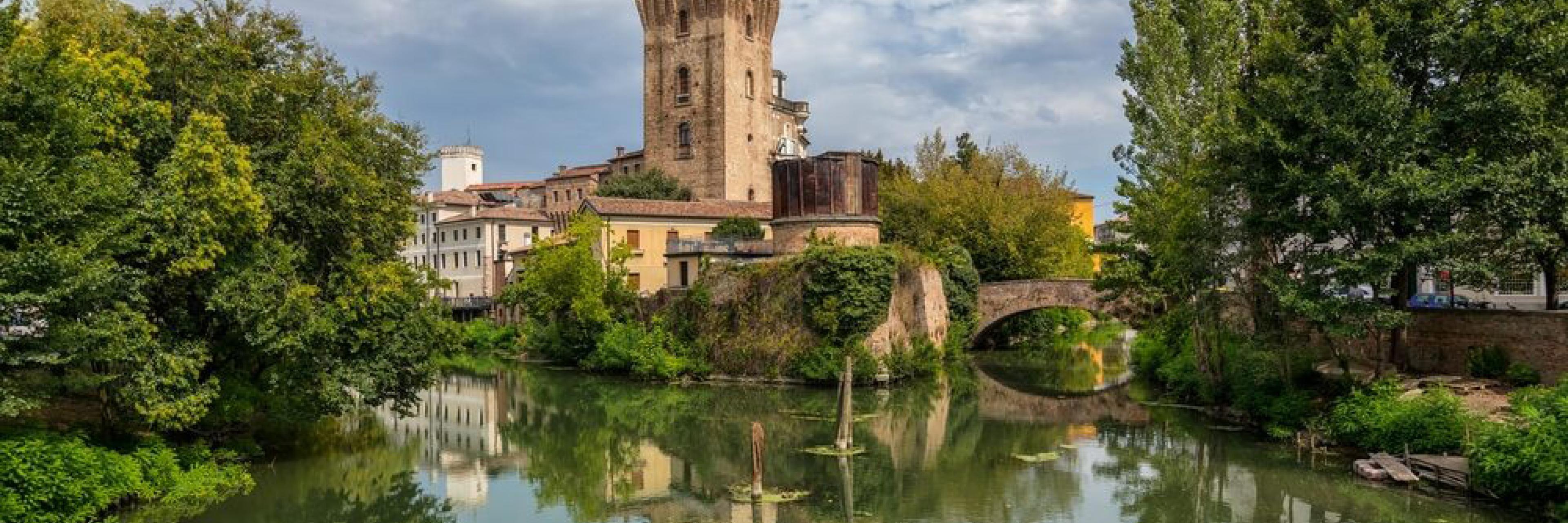
Inland Waterways in the Anthropocene
In-Situ Graduate School 2023 (ISGS 2023)
Inland Waterways in the Anthropocene: Integrating Cultural, Ecological, and Socio-Economic Perspectives for Waterway Regeneration and Sustainable Use
From 18-23 September 2023 the River Cities Network, IIAS and the University of Padova will organize a six-day intensive in-situ graduate school in the city of Padova on the regeneration of ancient inland waterways and the re-imagining of their ecological, social, and cultural functions in the contemporary urban context.
For detailed information, go to: https://www.iias.asia/masterclasses/inland-waterways-anthropocene
Theme description
Inland waterways are not simply physical features of the landscape. They are crucial for the world’s biodiversity, which they support by providing habitats and by connecting far-away ecosystems, such as hydrographic catchments and coastal zones. Waterways also have been fundamental in the historical development of human societies by providing water, food, protection, and trade routes and, therefore, the current condition of waterways in populated areas is the long-term outcome of close interactions between humans and nature. As such, waterways often make outstanding contributions to our cultural heritage.
In the Anthropocene, humans have heavily increased their ecological footprint, with negative impacts on riverine ecosystems too. Biodiversity in inland waters is threatened by the multiple human pressures which act upon river ecosystems, including morphological and flow regime alterations, pollution connected to growing human populations as well as agricultural and industrial emissions, excessive water abstraction for drinking, irrigation and industries, climate-change enhanced heat waves and droughts, and biological invasions. The resulting degradation impacts the benefits that waterways can provide to humans, either tangible ones, for example flood control or the self-purification capability found in healthy riverine ecosystems which is so important to mitigate sanitation problems, or intangible ones such as spiritual enrichment and recreational opportunities. Over the past decades, indeed, rivers and canals in Europe have experienced an ecological, hydraulic, and functional decadence connected both to environmental degradation and the decline of water transport after the Second World War, giving rise to a progressive cultural detachment from the previous “fluvial sense of place”. This is a vicious cycle: the degradation of the rivers and canals promotes a negative perception of them among local people, consequently increasing the cultural and socio-economic distancing from watercourses, which cause further degradation.
Yet, there is now a growing societal awareness about the need to adopt more sustainable lifestyles and economies to face the global environmental crisis. For this reason, waterways are again in the spotlight due to the many tangible and intangible values they hold for people, for example those connected to recreational opportunities, freshwater availability, or cultural heritage preservation just to name a few. Unfortunately, current approaches to the management of waterways in populated areas are too sectorial, for example hydraulic management prioritizing flood risk reduction or irrigation while overlooking river biodiversity or recreational uses. So, current management practices fail to recognize that these waterways are complex socio-ecological systems and that we should integrate cultural, ecological and socio-economic perspectives to trigger waterway regeneration and fully achieve their sustainable use. Today’s environmental problems force us to rethink the role of hydrography and replace current models of rivers and canals management with a more integrated approach that safeguards cultural waterscapes while delivering benefits to biodiversity, local inhabitants and socio-economic activities.
Case Study - Padova
Padova is a fluvial city in Northern Italy, about 40 km from Venice, with an urban population of over 200.000. It is home to numerous industries and to the University of Padova, one of the most ancient universities in the world, dating back to 1222, with around 63,000 students. Padova is surrounded by the River Brenta and the River Bacchiglione, and from the 12th century several artificial canals were built to further ease the fluvial trade between Venice and its hinterland. This watercourse system has strongly contributed to the socio-economic development of the city of Padova until after World War II, when several canals were culverted or destroyed after their infrastructure function started to be replaced by railways and highways. Recently, the watercourse system has been targeted by a regeneration project aiming to improve local environmental conditions degraded by decades of neglect and multiple human pressures. The objective is to enhance ecosystem service provision, create local green jobs, and restore the historical waterscapes of Padova, with the goal of making the management of the city canals more integrated, participatory, and sustainable.
Format
The In Situ Graduate School (ISGS) will comprise lectures by experts, open discussions, local field work, hands-on workshops, and field visits. Discussions will revolve around critical reflections on the following specific sub-themes:
- Matching social well-being demand with increasingly relevant ecological objectives, as part of the widespread planning interest in riparian waterfronts, in a context of conflicting water uses exacerbated by climate change.
- Evolving perceptions of waterscapes over time and why fluvial heritage is endangered today.
- Re-establishing the lost “watery sense of place” in local communities, and how to engage with them through participatory approaches to foster transformative change.
- Linking practices of waterway regeneration to broader sustainability goals.
- Investigating the extent of cultural representation in social attitudes and perceptions, including the role of fine arts and literary heritage.
More info: https://www.iias.asia/masterclasses/inland-waterways-anthropocene